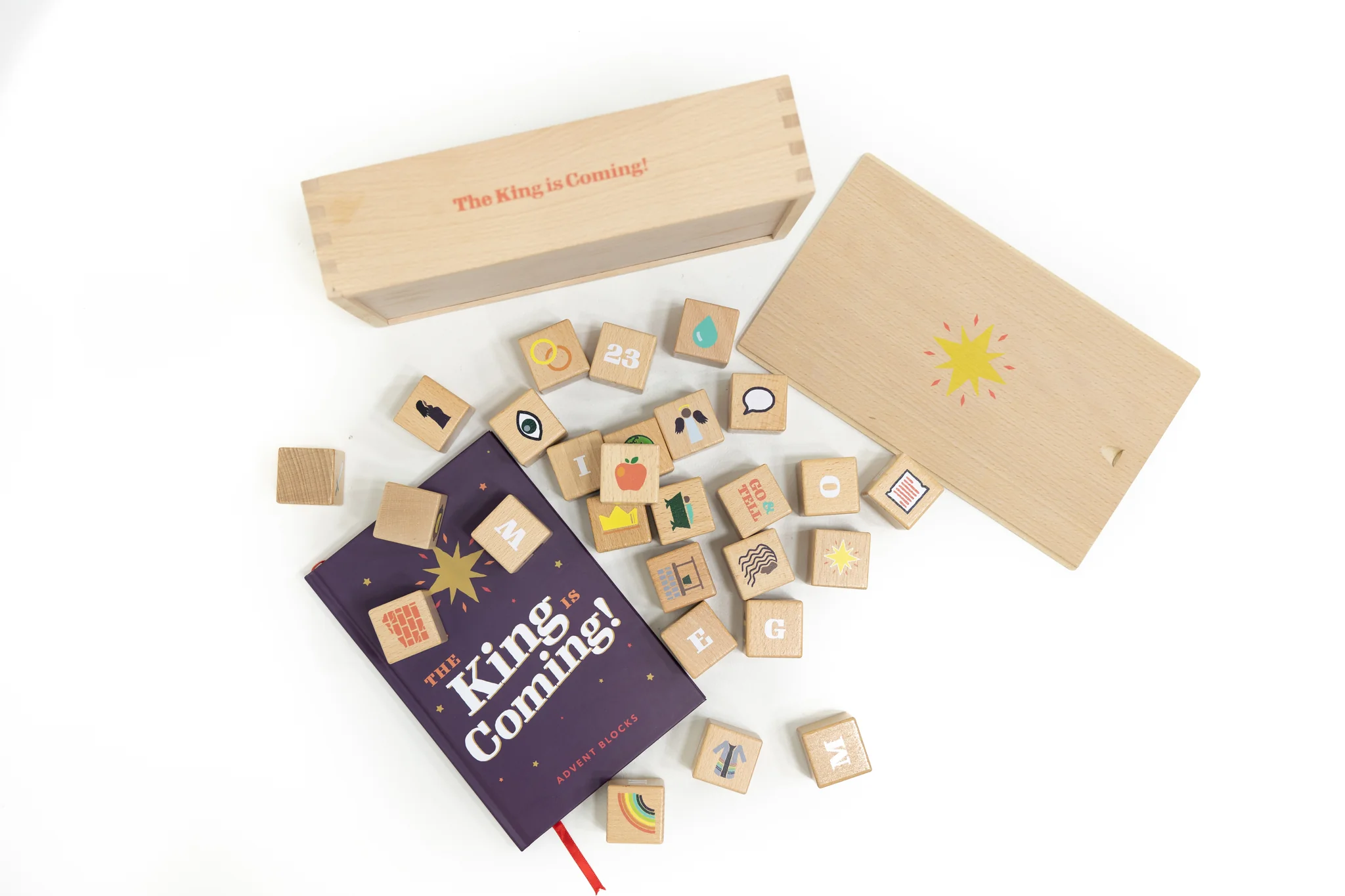Originality has its place, but Christmas is a time for tradition. If you’ve followed my writing for long, you know that our family has many Christmas traditions, from ritualistic tree-trimming and letters to Santa, to our Lego Advent calendar and decorating a gingerbread house on Christmas Eve. My favorite of our seasonal traditions are ones that draw our attention to the true meaning of Christmas, carrying the discipleship we do year-round into this holiday season as we step into the celebration of Jesus, our forever greatest gift. For this, we look to Advent.
Advent—the season of expectant waiting and preparation for the celebration of Christmas, and for the anticipation of Christ’s Second Coming—has been a liturgical staple among certain branches of Christianity for centuries. In recent years, I have seen Advent becoming increasingly prevalent among my own Christian circles. But a celebration of Advent is not new for me: Advent was a formative part of my own childhood Christmases, and long before I knew of other churches or families who practiced Advent in a formal way, my parents were reading Advent devotionals with my brother and me, assisting us in lighting the candles on our homemade wreath and singing traditional Advent hymns as we commemorated each Sunday before Christmas.

An Advent practice we have enjoyed with our own kids for the past two Christmases is Advent Blocks, a set of twenty-five numbered cubes that can be lined up across a mantle. Each day we turn a number block to reveal an image that corresponds to a story in the accompanying devotional guide. These daily readings recap the centuries preceding the birth of Jesus, extending all the way back to the Creation story and the Fall and journeying through the narrative of Scripture, with each Old Testament character (from Adam and Eve to Zerubbabel) asking, “God, will you come back … to stay?” Then—spoiler alert—God DOES come back. In the words ascribed to Mary in the book, “For such a long time, God seemed far away. But now, he has heard what we hoped and we prayed, God is coming to earth … to stay!”
The stories represented within these blocks are not easy ones. The individuals who formed the boughs of Jesus’ family tree were broken and flawed. Even the trunk itself was damaged: Adam and Eve had ONE RULE to follow, and they broke it. Abraham doubted God’s promises and attempted to cheat God’s plans for him. David was a man after God’s own heart, but he was an adulterer and murder and a lousy father. Entire generations of God’s people turned toward false gods, ignoring the proclamations and calls for repentance from prophets like Elijah and Isaiah.

As humans, it’s natural for us to look to the people of Scripture for answers. Unfortunately, if we focus on the people of the Old Testament as our source of comfort and hope we will be sorely disappointed. They were messy humans who doubted and sinned and veered far from God’s intended path. Their stories can be tidied up for a storybook retelling, but even the sanitized versions of their lives are marred by brokenness and sin.
Praise God that humans are NOT the protagonists of this grand story! Advent invites us to zoom out from the intimate Biblical narratives to study the overarching story of God, the true hero of Scripture and of eternity. He is our Creator God who set the earth into motion, breathed life into humans and gave us dignity, purpose, and worth. Mankind rejected our Lord, not once or twice but endlessly. But the Lord remained faithful. He did not turn away. Instead, He drew near.
All of the Old Testament is a long runway to the grand finale of Jesus’ birth! Creation groaned under the weight of sin, but God heard our hopes and prayers and answered in the most unexpected and astounding way imaginable! He made Himself nothing, taking the very nature of a servant, being made in human likeness. A humble feeding trough in an inconspicuous town became the proving ground of God’s faithfulness. An infant’s cry resounded through all creation, proclaiming God’s goodness and supreme love.
The story was not over. Mankind would continue to turn from Him, denying His sovereignty and rejecting His good gift of salvation. But the story’s conclusion was written, offering an ending rooted in God’s faithfulness—from the fall in the garden through the birth of Jesus, from the time of Christ to the Second Coming, and into eternity.

God, for so long you seemed distant. Generations hoped and prayed that you would come to offer reconciliation and salvation. You answered with a resounding YES when you became Emmanuel, God with us! We praise you and thank you for remaining faithful. And God, we continue to hope and pray as we await your return. We trust that you are at work in this in-between time as we celebrate your redemption and look forward to eternal reign in the Kingdom that is to come. Help us to cling steadfastly to you as you remain faithful to us.